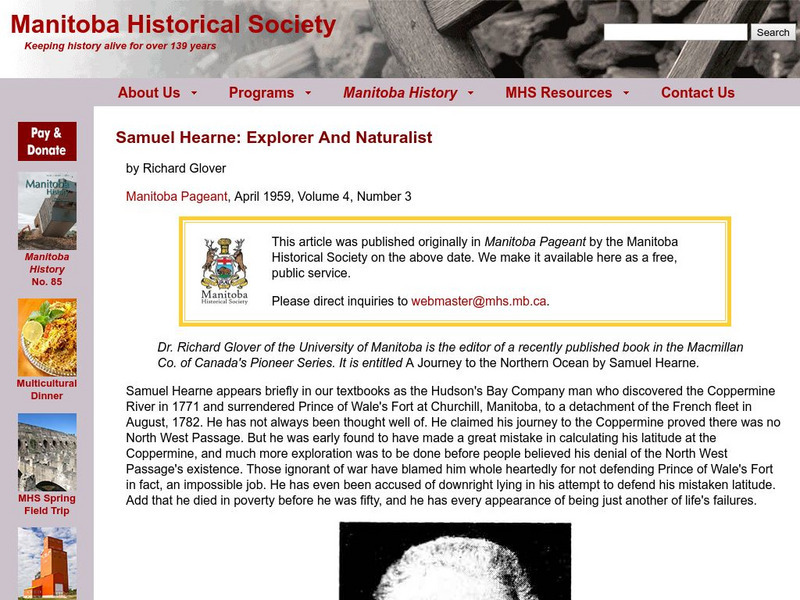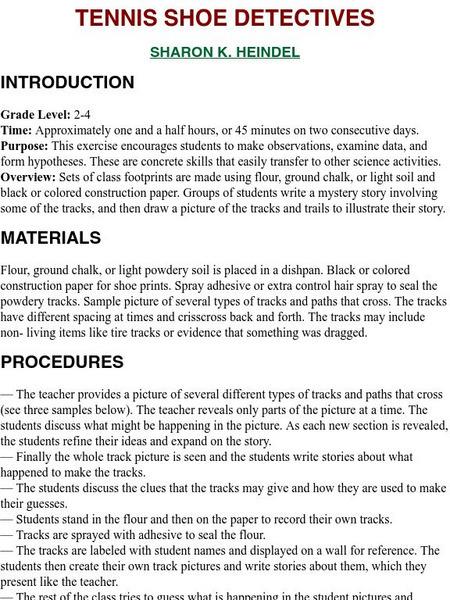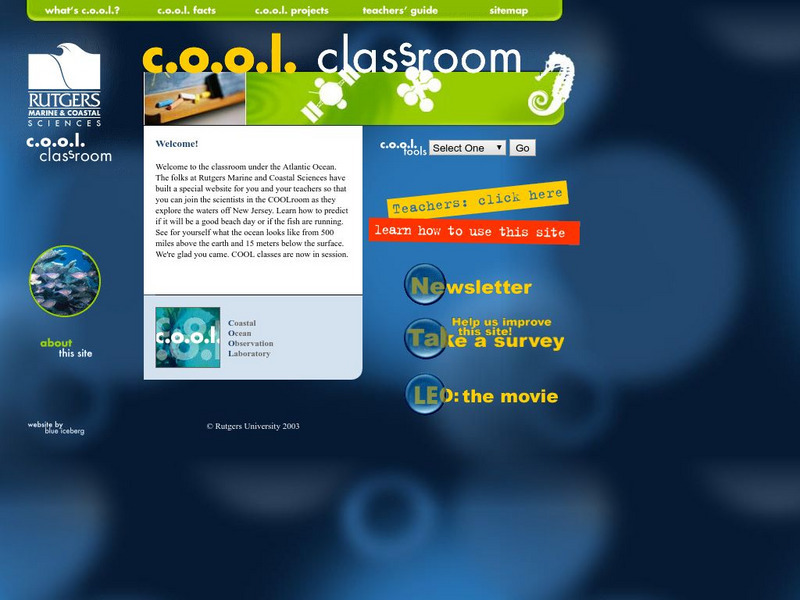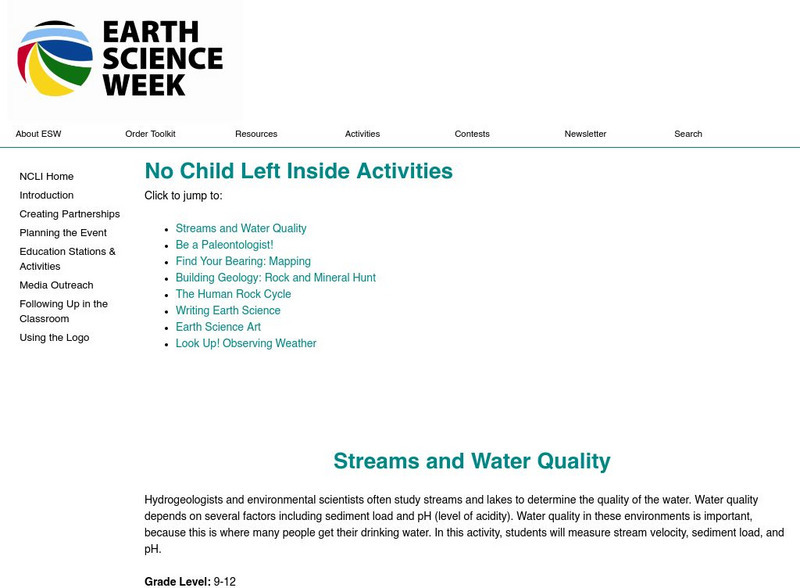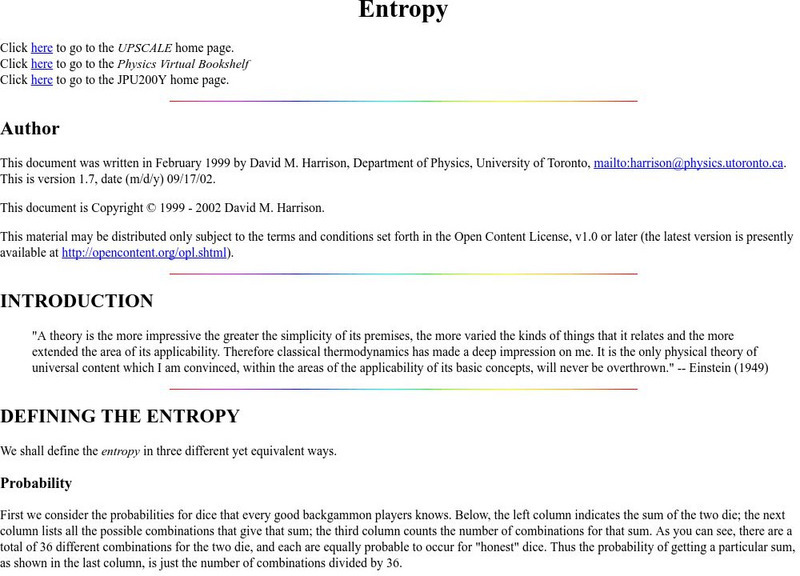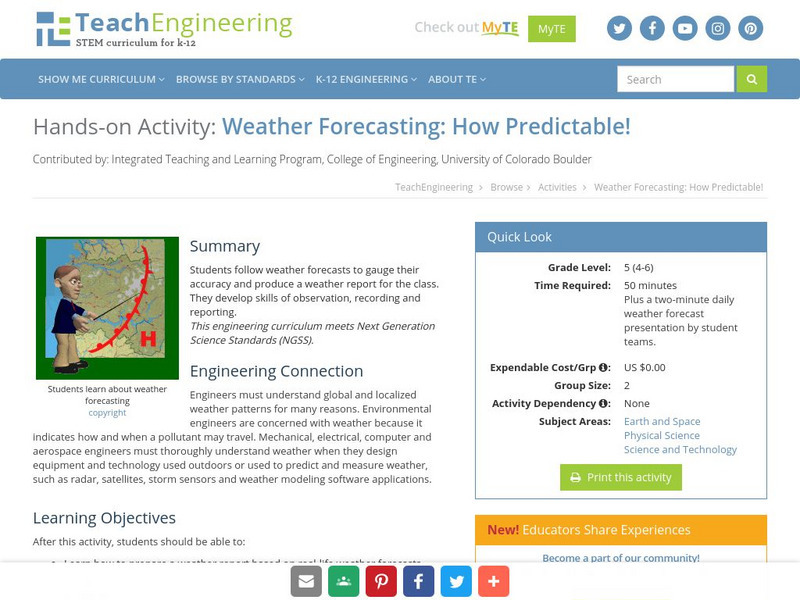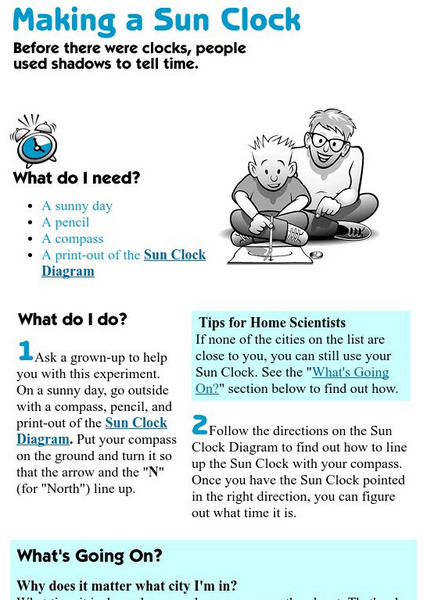Other
Brandeis University: How Planning and Reflection Develop Young Children's Thinking Skills
Young children ages three to six are capable of making thoughtful decisions about their behavior and keen observations about their environment. We can promote the development of thinking and reasoning in young children in the early years...
CK-12 Foundation
Ck 12: Earth Science: Scientific Explanations and Interpretations Study Guide
[Free Registration/Login may be required to access all resource tools.] A brief explanation of the difference between facts, observation, and opinions. Includes a few questions to check for understanding.
AdLit
Ad lit.org: Reading Discussion Guide: Godless by Pete Huatman
A simple gag makes faith the centerpiece of Jason Bock's summer: What if the town water tower is God? Jason shares his quirky observation with his friend Shin, and soon finds himself the head of a new religious sect of "Chutengodians"...
Science Education Resource Center at Carleton College
Serc: Bubbling Blobs
In this chemistry lab, students investigate how oil and water don't mix. They will work on their observation skills and their ability to follow directions to ensure they get the correct results. Students can then develop a new, testable...
Other
Samuel Hearne: Explorer and Naturalist
Though he "has not always been thought well of," Samuel Hearne is the first--and one of the best--naturalists in Canadian history. This article lists some of the reasons he has been perceived as a failure and highlights the first-class...
University of California
Ucmp: Understanding Science: Tennis Shoe Detectives
A lesson where students take copies of their shoe prints, then create a story and illustrate it with pictures showing trails of footprints. Presented are samples of such trails that can be used to stimulate class discussion, and to...
Other
Rutgers Marine & Coastal Sciences: Cool Classroom
Students and teachers can explore the work of marine scientists and observe the ocean from their computers. Learn about Rutgers Coastal Ocean Observation Laboratory, discover why oceanography is important, and see what life is like in...
Alabama Learning Exchange
Alex: Butterfly Life Cycles
This unit introduces learners to a study of life cycles by having them examine the life cycle of a butterfly. The students will observe, record and describe the changes in caterpillars as they become butterflies. The teacher will...
Common Sense Media
Common Sense Media: Education: Using Keywords (K 2)
[Free Registration/Login Required] Students understand that keyword searching is an effective way to locate information on the Internet. They learn how to select keywords to produce the best search results to meet their goals. Then they...
American Geosciences Institute
American Geosciences Institute: Earth Science Week: Building Geology: Rock and Mineral Hunt
Students will use their observational skills to examine rocks they find on the exterior of the school building and on the ground on the campus.
PBS
Pbs Teachers: Scientific American: Life's Little Questions: Frozen Droplets
Investigate the use of stroboscopic disks to study actions that are too fast for the naked eye, and construct a stroboscopic viewer to demonstrate how a gated view of dripping water may produce the illusion of "frozen" motion.
HotChalk
Hot Chalk: Lesson Plans Page: Planting Seeds
This simple lesson plan is designed to help young students be aware of how seeds sprout, and that seeds grow into plants.
University of Toronto (Canada)
University of Toronto: Entropy
A discussion of entropy that focuses on explaining entropy, how it applies to the second law of thermodynamics, and real-life observations of the existence of entropy.
PBS
Pbs Teachers: Scientific American: Chimps R Us: Speaking Chimp
Explore the vocabulary and vocalizations in chimpanzee communications and connect them to emotions. Develop and participate in a field study of animal behavior based on observations and interactions with dogs
TeachEngineering
Teach Engineering: How Predictable!
Students follow weather forecasts to gauge their accuracy and produce a weather report for the class. They develop skills of observation, recording and reporting.
Better Lesson
Better Lesson: Awesome, Weird, Cool Not!
From observing a cat to touching and describing mysterious things in brown paper bags, 4th graders learn to understand that specialized senses and precise words go hand in hand in developing good inquiry skills.
Cyberbee
Adventures of Cyberbee: Graphing
Teacher-directed lesson plan focusing on data analysis, graphing, and probability. Lesson includes a video and engaging spreadsheet activities.
Other
American Coal Foundation: Lesson Plan: Coal Formation
In this four-part lesson, students will conduct a simulation of the coal formation process and will show the ability to do scientific inquiry. For the final project, they will use their findings they have recorded on their "Coal Fossil...
PBS
Pbs Teachers: Scientific American: Animal Einsteins: Figure That One Out
Investigate problem-solving techniques by using observation and data analysis skills. Observe how different people solve the same puzzle and make conclusions about how humans and animals think.
National Earth Science Teachers Association
Windows to the Universe: Christian Doppler
A biographical sketch of Christian Doppler (1803-1853), the Austrian mathematician whose study on the dependence of pitch upon the relative speed of source and observer resulted in the Doppler effect.
Exploratorium
Exploratorium: Making a Sun Clock
Learn how to use the sun to tell time. This simple activity reinforces the concepts of light and shadow, night and day, time, and geographical north vs. magnetic north.
Science and Mathematics Initiative for Learning Enhancement (SMILE)
Smile: The Center of Mass
This site from the Illinois Institute of Technology provides a lab activity in which students determine the location of the center of mass of an irregularly shaped object. Observations are related to the balancing point of the object....
Other popular searches
- Science Observation Skills
- Observation Skills Ppt
- Observation Skills Nursing
- Observation Skills Forensics
- Tefl Observation Skills
- Observation Skills Pot
- Observation Skills Scince



